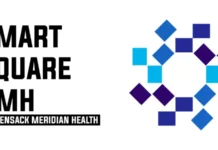Stomach cancer is a disease in which malignant cells form in the stomach mucosa. The initial symptoms of gastric cancer are unfortunately vague and common to other conditions, such as gastritis and ulcers, as they include –
- Digestive difficulties
- Pain or heartburn
- Feeling of fullness
- Swelling
In more advanced stages there can also appear
- nausea and vomiting (possibly with blood )
- blood in the stool
- dysphagia (difficulty swallowing)
- unexplained weight loss
Almost all gastric tumors are adenocarcinomas, i.e., tumors that start in cells that produce and release mucus and other fluids. Other types of gastric cancer are –
- Gastrointestinal carcinoid tumors
- Gastrointestinal stromal tumors
- Lymphomas
Gastric cancer occurs mainly in old age, after the age of 65, and the most frequent predisposing cause is infection by Helicobacter pylori. In fact, this bacterium is able to cause chronic gastritis that over many years can lead the cells of the stomach to neoplastic degeneration.
Stomach cancer in the initial phase is often asymptomatic, and this aggravates the prognosis, because it comes with a late diagnosis, when the tumor has metastasized into different organs, and the treatment is not very effective.
Treatment options include surgery, chemotherapy, radiotherapy or a combination thereof.
How can stomach cancer be detected?
The tests useful for the diagnosis of stomach cancer are –
- Esophagoscopy Gastroscopy Duodenoscopy (EGD) is the most essential diagnostic investigation. It allows the visual exploration of the first part of the digestive tract through the use of a thin tube ( endoscope ), introduced through the mouth, which illuminates and enlarges the portions of the bowels explored, through which tissue removal can also be performed (biopsy) that allow histological diagnosis. It is the most crucial diagnostic investigation.
- Histological examination defines the tumor subtype of the tissue taken by EGD and allows the appropriate therapeutic indications to be placed.
- X-ray of the digestive tract is a method of secondary use, not very useful in identifying small lesions, which does not allow histological diagnosis.
- Echoendoscopy enables to evaluate the depth of tumor invasion in the gastric wall and to assess the state of lymph nodes adjacent to the stomach.
How can stomach cancer be treated?
The surgical removal of part of the stomach remains the primary treatment option. The scope of surgical removal is a function of the extent of the disease.
Stomach cancer may possibly be reduced through the implementation of preoperative chemotherapy. After the intervention, in some cases, a complementary pharmacological or, more rarely, radiotherapeutic treatment may be indicated.
In the case of advanced metastases the treatment is chemotherapy type.
Medical treatment
When the tumor is extensive and cannot be removed entirely, chemotherapy can be implemented with the aim of reducing cancer and making it removable.
The chemotherapy is also used as a precautionary treatment after surgery in cases where the histological examination has identified the presence of risk factors for the reappearance of the tumor.
The chemotherapy ultimately is the primary treatment when there has been distant metastases.
Surgical treatment
From the point of view of surgery on stomach cancer, the standard indication in invasive carcinomas is the removal of 2/3 of the stomach (subtotal gastrectomy) or of the whole organ (total gastrectomy). This type depends on the site of the neoplasm – if it is located in the final part of the stomach it is not necessary to remove it all, but if it is situated in the section closest to its beginning, total gastrectomy must be performed.
The surgical treatment also involves the removal of the regional lymph nodes
Radiotherapy treatment
The therapy has a limited indication of stomach cancer. In some cases it may be indicated in cases of incomplete surgery and in some cases, it can be used as a precautionary measure after radical surgery.
Stomach Cancer Treatment Cost in India
As in other cancers, there is the cost of surgery and chemotherapy. Gastrectomy at CMC Vellore costs between INR 1 lakh and 2 lakhs or USD 1,400 to 2,400, depending on its subtype – partial or total. It requires extended hospital stay and ICU expenditure apart from the surgery. The cost of chemotherapy is about INR 2.5 lakhs or USD 3,500 per cycle. Apart from CMC Vellore, Max Cancer Center at Delhi and Tata Memorial Hospital at Mumbai are well reputed for cancer care in India.



































































